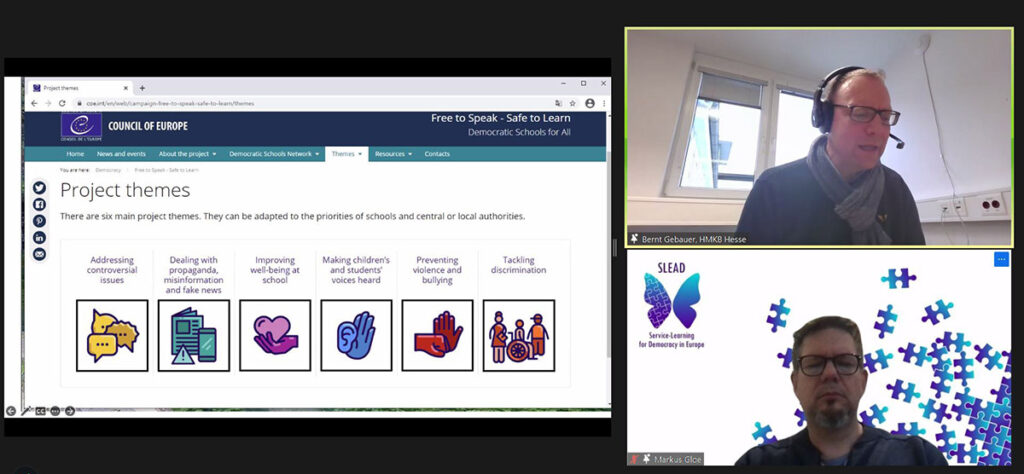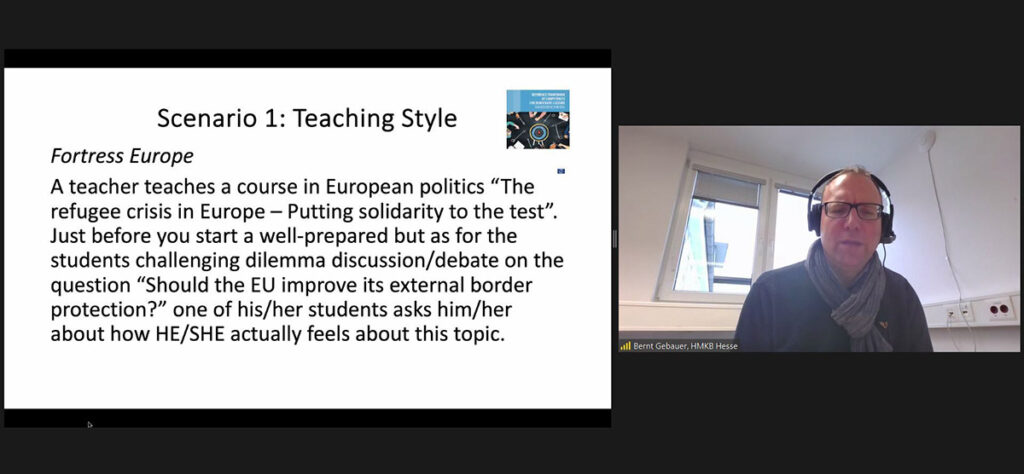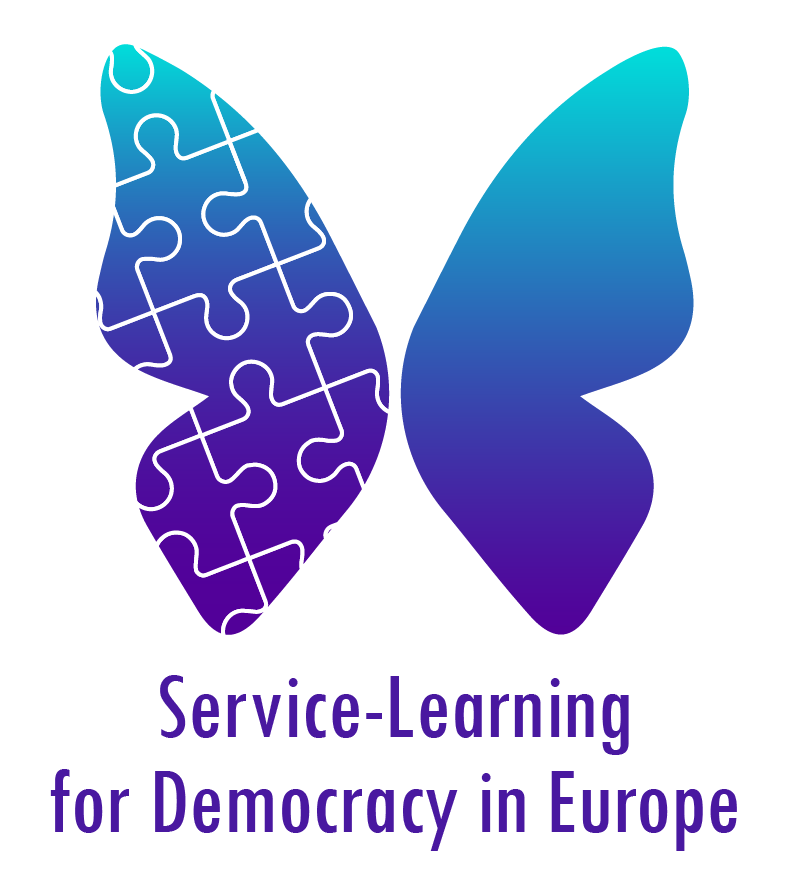In recent developments within the educational domain, the incorporation of Service-Learning into the framework of democratic education has been recognised as a pivotal approach towards fostering democratic competences. The second module of the SLEAD Online Training comprising two webinars was designed to provide educators with theoretical underpinnings and practical tools to effectively integrate S-L into their pedagogical practices with a focus on promoting democratic competences.
The initial webinar was structured to provide participants with a foundational understanding of the competences necessary for a democratic culture. Guest Speaker Bernt Gebauer from the Hessian Ministry of Education, member of the Education Policy Advisors Network (EPAN) of the Council of Europe, introduced the Reference Framework of Competences for Democratic Culture (RFCDC) of the Council of Europe. The RFCDC as a set of materials can be used by education systems to equip young people with all the competences that are needed to take action to defend and promote human rights, democracy and the rule of law, to act as active citizens, to participate effectively in a culture of democracy, and to live peacefully together with others in culturally diverse societies. It is intended for use by education policymakers, especially those working within ministries of education, and by education practitioners in all sectors of education (preschool, primary and secondary education, vocational education and training, higher education and adult education). The RFCDC provides a systematic approach to designing the teaching, the learning and the assessment of competences for democratic culture.
The utilisation of concrete examples of real Service-Learning projects served to illustrate the practical promotion of democratic competences, offering tangible insights into the implementation process.
Building upon the groundwork laid in the first webinar, the second session commenced with an interactive Q&A segment designed to address any queries arising from the self-learning phase, complemented by peer-to-peer discussions. This format was chosen to deepen the understanding of the mechanisms through which Service-Learning can promote democratic competences. The focus of the second webinar was an intensive work phase in small groups, where participants, guided by experienced practitioners, developed their own Service-Learning projects aimed at promoting selected democratic competences. In the end, numerous exciting project ideas were presented, which can serve as inspiration for one’s own Service-Learning projects.


This module of the Online Training Service Learning for Democracy was an opportunity to pick up on the results of the comparative country study, which shows that the use of models for service learning such as the RFCDC or the competence model for service learning (Gloe/Mautz, 2019; available in English on request) is an important component for implementation and teacher training. Using practical examples, which were a core component of most of the project’s webinars and were clearly presented by experts, the processes behind service-learning projects could be profitably presented and passed on to teachers in Europe.
You can learn more about SLEAD training here: Training.
